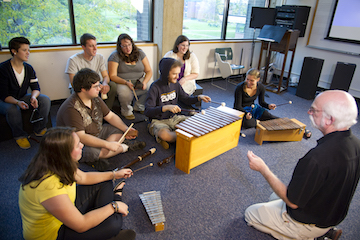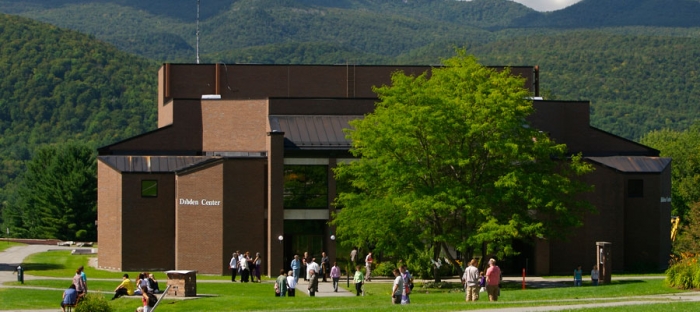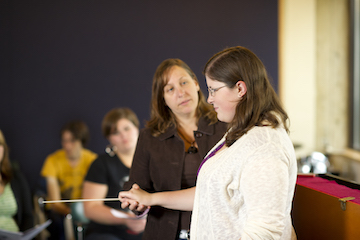Johnson State College Music/Music Education
BME Degree Program Information, Curriculum, Mission Statement and 4 Year Plan of Study
Thinking of becoming a music teacher? Explore the new JSC Bachelor of Music Education Degree Program!
The Bachelor of Music Education degree is a 4-year program rich in General Education courses, Education courses (both universal and music specific) and Music Performance, History and Theory.

Our belief is that our music teachers should be well rounded and well informed, good writers, intelligent, reflective thinkers, accomplished musicians and equipped with current education and music education theories and be given ample opportunities to practice teaching in a safe learning evironment on and off campus.
The program is designed to be in line with guidelines from National Association of Schools of Music (NASM) and Vermont's Licensure in Music pK-12 in vocal, instrumental and general music requirements.
The BME curriculum is divided into 4 broad sections:
Johnson State College General Education courses (English, Math, Science, First Year Seminar, Interdisciplinary Perspectives*, etc.)
Music Department courses in theory, history and performance.
JSC Education Department courses.
Music Education courses.
*The JSC Interdisciplinary Perspectives areas of Social/Historical, Global, Aesthetic and Civic are embedded in the BME coursework.
Click HERE for more details, the course listing and suggested 4 year sequence.

 Musicians are most successful as teachers if they understand current structures, systems, and practices in education. The music educator in this age of educational change and accountability must be able to express knowledge of teaching and learning through verbal communication (oral and written) and through overt, demonstrable high-level musical and teaching skills.
Musicians are most successful as teachers if they understand current structures, systems, and practices in education. The music educator in this age of educational change and accountability must be able to express knowledge of teaching and learning through verbal communication (oral and written) and through overt, demonstrable high-level musical and teaching skills.